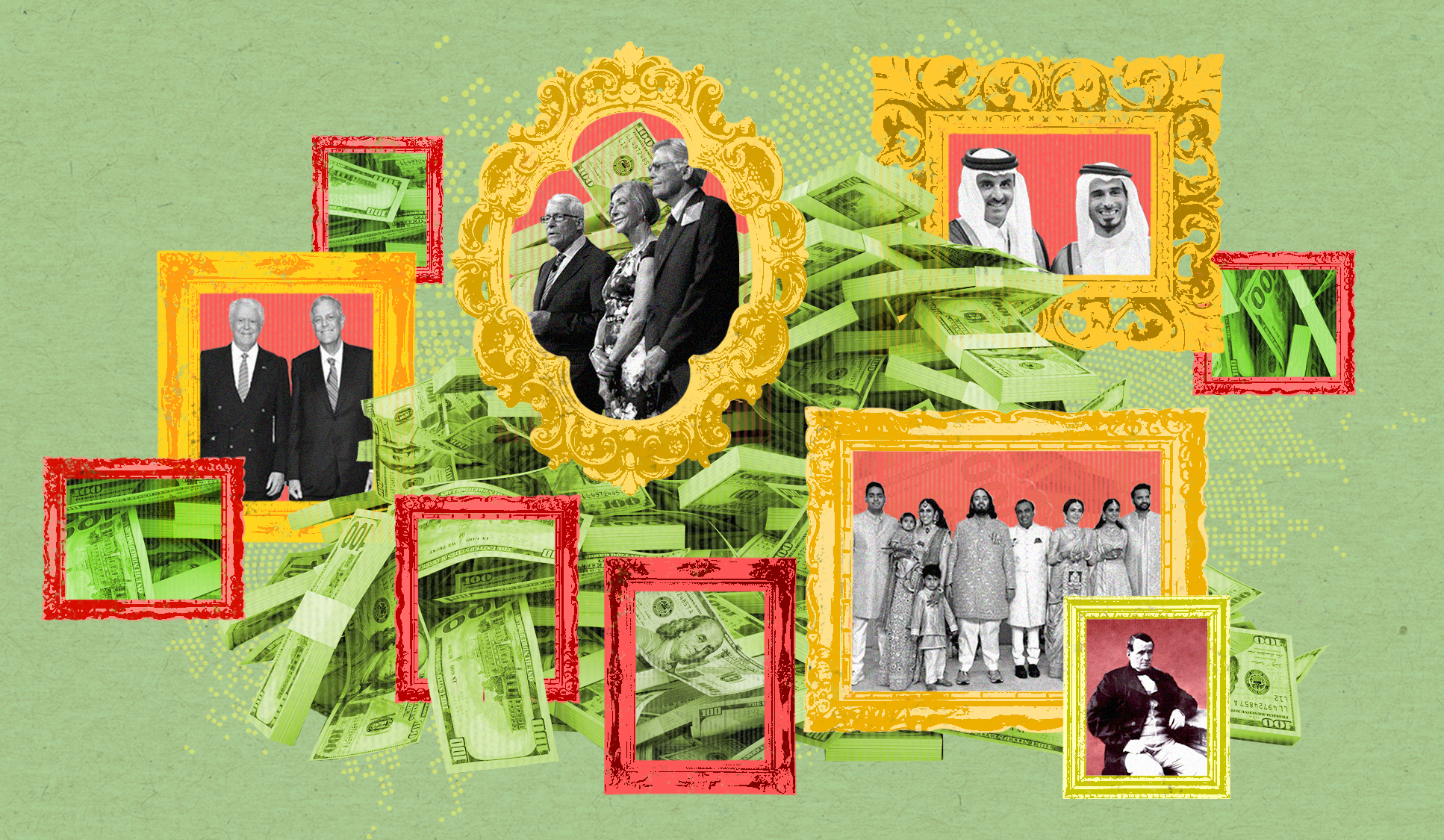France aspires to work by working less. Is it working?
How the famed French work-life balance really plays out, and how the French economy is affected


A free daily email with the biggest news stories of the day – and the best features from TheWeek.com
You are now subscribed
Your newsletter sign-up was successful
France is a lot of things — refined, proud, particular about its language, a center of arts and fashion, a land of wine and cheese, one of the world's top tourist destinations — but it isn't generally thought of as a locus of industrial efficiency. If Germans are hard-working, beer-guzzling automata in the popular imagination, the French are fainéant wine-sipping aesthetes and bon vivants.
And yet France is one of the wealthiest economic powerhouses on Earth, No. 7 in the world in GDP and second only to Germany in the über-developed European Union.
What's more, the French make balancing work and life look easy, with their 35-hour workweek, minimum five weeks of paid vacation, and the legal right not to be disturbed by your boss outside working hours. As the bitter fight over President Emmanuel Macron's hugely unpopular changes to the French pension system demonstrates, however, the French have to work hard to maintain the life side of that work-life equation.
The Week
Escape your echo chamber. Get the facts behind the news, plus analysis from multiple perspectives.

Sign up for The Week's Free Newsletters
From our morning news briefing to a weekly Good News Newsletter, get the best of The Week delivered directly to your inbox.
From our morning news briefing to a weekly Good News Newsletter, get the best of The Week delivered directly to your inbox.
So, how does France work by working less — or does it? And what can other countries learn from the grand French work-life experiment?
How much do the French actually work?
Less than their European peers, on average, and certainly less than the average American.
France took the pioneering step of mandating a 35-hour work week in 2000, partly as a way to reduce unemployment. But that only applies to blue-collar workers. Managers and other white-collar workers (cadres) work longer hours — 43.2 hours a week, according to 2016 statistics — though they are compensated with negotiated extra days off, or réduction du temps de travail (RTT). The average RTT allotment was nine days in 2013. A growing number of French companies are also experimenting with a four-day workweek.
On top of that, the French get at least five weeks of paid vacation a year, often eight to 10 weeks, plus 11 national holidays. Under a 2017 right-to-disconnect law, workers at companies with more than 50 employees are legally protected from having to pick up the phone or laptop after hours or during weekends and vacation time. And "directors and C-Suite offices will receive fines and prison sentences if it is found that employees have been coming into the office on Sunday to work," the blog Snippets of Paris explains.
A free daily email with the biggest news stories of the day – and the best features from TheWeek.com
The typical French workday starts at 9:30, pauses for a 10:30 coffee break, and is broken up by a two-hour lunch, often with wine, at either a company-subsidized canteen or outside restaurant, Snippets of Paris adds. Blue-collar workers are expected to stay at the office until 6, and white-collar cadres "usually don't leave the office till around 6:30 pm at the earliest." Once you clock out, by law, you can't return to the office for 11 hours.
Overall, the French put in just under 40 hours a week, an hour less than the Eurozone average, according to 2008 Eurostat numbers. "It's really the 35 hours that have created this false idea that the French don't work a lot," Olivier, a senior counsel at a large French multinational, told BBC News, adding that he works 45 to 50 hours a week, from 9 to 7:30. "The idea sticks in people's minds. But it's not a reality."
What about retirement?
Before Macron raised the retirement age to 64, French workers across the spectrum could retire with a full state-administered pension at 62. Macron is getting a lot of blowback for his unilateral pension reform; most economists agree the retire-at-62 model is unsustainable, as the French population ages and fewer workers are supporting more retirees, but there is fierce disagreement about how dire the pension system's fiscal health is, or whether there are better solutions for better solvency.
Fewer and fewer Americans will retire with pensions, and Social Security is nowhere near as generous as France's pension system. The net pension replacement rate in France — roughly the percentage of retirement income versus main pre-retirement income — is about 74 percent, versus 51 percent in the U.S. and an average of 62 percent across Organization for Economic Cooperation and Development countries, according to OECD figures.
France is paying for that — public pensions make up 13 percent of France's GDP, versus 5 percent of GDP for Social Security. Still, you can see why the French are upset about working for two more years before getting to retire, especially since the retirement age was 60 until former President Nicolas Sarkozy raised it in 2010, sparking another huge wave of protests.
And young French protesters are out in the streets fighting against Macron's reforms as well, even though they have to most to lose if payroll taxes rise or the system runs out of money, Fortune reports. "Many see raising the retirement age as opening the way to the erosion of all the other labor benefits — including some perks that American workers could only dream of."
Whatever slogans they are shouting in the street — "such as 'commute, work, die' — the French are anything but lazy," Lionel Laurent writes at Bloomberg Opinion. "If the French aren't thrilled about working longer, it may be because many feel like they've already paid their dues. French executives are the world's worst workaholics, a BUPA survey found, which might be one reason why few retirees are misty-eyed about going back."
How does the French standard of living compare?
It is, generally speaking, good to be French. "France performs well across a number of well-being dimensions relative to other countries," the OECD assesses in its 2020 Better Life Index, and it "outperforms the average in work-life balance, safety, social connections, and civic engagement."
"Money, while it cannot buy happiness, is an important means to achieving higher living standards," OECD says, and while the French are wealthier than the OECD average, Americans have significantly more disposable income and household wealth. The average household net disposable income in France, $34,375 a year, was higher than the 2020 OECD average of $30,490, but much lower than the U.S. average of $51,147 a year. The U.S., in fact, is No. 1 of the Better Life Index's 41 countries in terms of household; France is No. 12.
The U.S. is also No. 3 in household net wealth, $684,500, much higher than the OECD average of $323,960. France, with net household wealth of $298,639, is No. 19.
On the other hand, the French live longer than Americans — the average life expectancy in 2020 was 83 years in France and 79 in the U.S. — meaning the average French retiree will still have at least five more years to enjoy his or her more generous pension even after Macron raises the retirement age to 64.
And France is second only to Italy in time spent on leisure activities and personal care; the U.S. is No. 29. The average full-time worker in the OECD index spends 15 hours on eating, sleeping, socializing with friends and family, and other leisure activities. The average French worker devotes 16.2 hours, or 67 percent of their day, on such activities; for the average U.S. worker, it's 14.6 hours, or 61 percent of their day.
According to a French proverb, "If working hard made you rich, donkeys would be covered in gold."
There is some truth to the saying "The French work to live; Americans live to work," authors Sabine Landolt and Agathe Laurent tell France-Amérique magazine. Americans need a job for health care and a sense of identity, but "in France, the search for pleasure and quality of life are essential, and the system allows for that. With this in mind, many French people are surprised to discover that their annual vacation time does not interest Americans. And many Americans still don't understand where the French disappear between noon and 2 p.m."
Americans have a slight edge when it comes to general life satisfaction, though, at least in the OECD's Better Life Index survey. On a scale of 0 to 10, Americans give themselves a 7; the French match the OECD average of 6.7.
So, is France working?
You may be surprised that "an economy with a high tax burden and one of the earliest retirement ages in the developed world" is among "the top performers in the years since the pandemic," but "France is that economy," economist Sam Miley writes at Reaction. The Heritage Foundation calls France "one of the world's most modern countries," with a "diversified economy" led by tourism, manufacturing, and pharmaceuticals, whose "world-class infrastructure and communications, an innovative business community, and a modern regulatory system" earn it "high marks for business freedom."
People may be puzzled by the "French paradox" — a robust economy with shorter workweeks and longer vacations — but "many French people work far more than we imagine," Landolt and Laurent tell France-Amérique. "France also produces extremely versatile and exceptionally well-trained executives. Some statistics show that France has the highest hourly productivity rates. It seems that counting the days until vacation is a great motivator!"
At the same time, while Americans embrace risk and opportunity and trust their instincts, "the French tend to spend too much time studying résumés — to the point that French entrepreneurs often choose to move to the United States," Landolt and Laurent add. "Job security is part of the French model," along with the long vacations and leisurely lunches, but for many Americans "all these apparent advantages are also seen as obstacles to economic dynamism and, on a personal level, a hindrance in a system of career progression founded on merit."
"No system is perfect, including the French work culture," American expatriate Diane Wargnier writes in her Oui In France blog. "There are many things about the French work culture and employment in general that are flawed, just like in any country. But facts are facts and no one will argue that the French value their leisure time. They work hard and are rewarded for it."
What can the U.S. learn from France?
Perhaps that there's more to life than a job, and workaholism has its downsides.
"For the Americans who experienced it, French-style vacation was a way to recharge their batteries," and "they saw the positive impact that it had on their work," Landolt and Laurent tell France-Amérique, quoting an American in Paris they interviewed for their book: "When I got back from my first long vacation, I realized that I had found my creativity again, that I was more inspired. I never wanted to go back to the old ways."
The U.S. is one of the few developed countries that doesn't require companies to offer paid vacation, but "besides working for companies that have terrible vacation policies, many Americans don't take their allotted days off," Jessica Kane writes at HuffPost. That's bad for workers and bad for productivity.
Americans "are what they do," but "in France, work is seen as a thing you have to do. But when I'm not working, I'm not working. It's very clear," French expatriate and researcher Emma Seppala told Insider. "It's kind of shocking for a European to come to the U.S. and just be like, 'Oh my gosh. You don't take time off. You don't even want to take time off.'"
"Will American work culture shift? I don't know," Wargnier writes in Oui in France. But now "Americans slave away during the prime years of their lives, for what purpose? Just to have freedom to do what they want after age 60+? Where's the fun in that? I never quite accepted the fact that we have to work hard until retirement age and wait to pursue the things we love. Why not do both? In France, you can."
What works in France won't necessarily work in other countries, Natalie Gil writes at Refinery29, noting that Britain's Labour Party abandoned a proposal to adopt a French-like 35-hour workweek in 2022 after a study determined such a nationwide cap wouldn't be "realistic or even desirable" in Britain's economy. Even France's vaunted 35-hour workweek "isn't as simple or as generous as it sounds," she adds, but "more opportunities to rack up overtime pay, more holiday days and a governmental signal that, actually, work-life balance should be a priority for everyone, would certainly be welcomed" for many people outside France.
Peter has worked as a news and culture writer and editor at The Week since the site's launch in 2008. He covers politics, world affairs, religion and cultural currents. His journalism career began as a copy editor at a financial newswire and has included editorial positions at The New York Times Magazine, Facts on File, and Oregon State University.
-
 Book reviews: ‘Bonfire of the Murdochs’ and ‘The Typewriter and the Guillotine’
Book reviews: ‘Bonfire of the Murdochs’ and ‘The Typewriter and the Guillotine’Feature New insights into the Murdoch family’s turmoil and a renowned journalist’s time in pre-World War II Paris
-
 Witkoff and Kushner tackle Ukraine, Iran in Geneva
Witkoff and Kushner tackle Ukraine, Iran in GenevaSpeed Read Steve Witkoff and Jared Kushner held negotiations aimed at securing a nuclear deal with Iran and an end to Russia’s war in Ukraine
-
 What to expect financially before getting a pet
What to expect financially before getting a petthe explainer Be responsible for both your furry friend and your wallet
-
 The EU’s war on fast fashion
The EU’s war on fast fashionIn the Spotlight Bloc launches investigation into Shein over sale of weapons and ‘childlike’ sex dolls, alongside efforts to tax e-commerce giants and combat textile waste
-
 Shein in Paris: has the fashion capital surrendered its soul?
Shein in Paris: has the fashion capital surrendered its soul?Talking Point Despite France’s ‘virtuous rhetoric’, the nation is ‘renting out its soul to Chinese algorithms’
-
 French finances: what’s behind country’s debt problem?
French finances: what’s behind country’s debt problem?The Explainer Political paralysis has led to higher borrowing costs and blocked urgent deficit-reducing reforms to social protection
-
 The world's 10 richest families
The world's 10 richest familiesIn Depth Luxury retailers, hereditary monarchs and the heirs to the Walmart fortune dominate the list of the world's wealthiest clans
-
 What's Jeff Bezos' net worth?
What's Jeff Bezos' net worth?In Depth The Amazon tycoon and third richest person in the world made his fortune pioneering online retail
-
 How New York's legal cannabis rollout ended up in the weeds
How New York's legal cannabis rollout ended up in the weedsin depth And many of the state's promises to social equity applicants went up in smoke
-
 California's homelessness crisis just can't catch a break
California's homelessness crisis just can't catch a breakIn depth Recent data dispels a widespread theory for who's to blame
-
 How synthetic diamonds are upending the industry's status quo
How synthetic diamonds are upending the industry's status quoIn Depth Lab-grown diamonds are causing changes in a business that is already under heavy scrutiny
